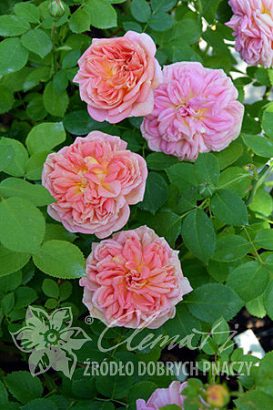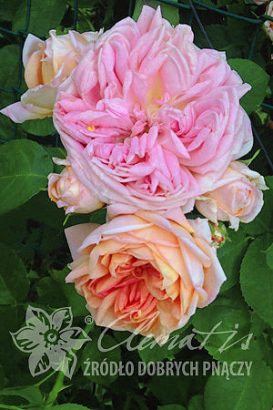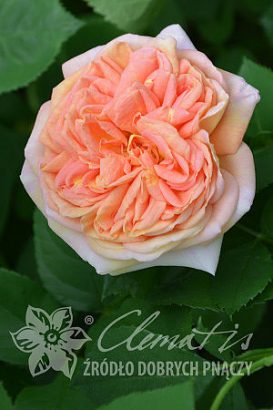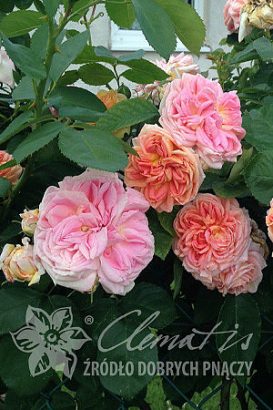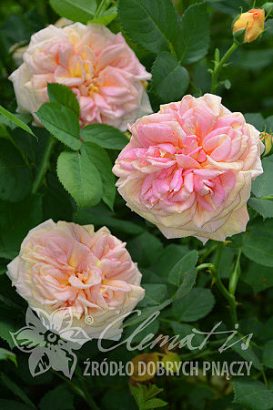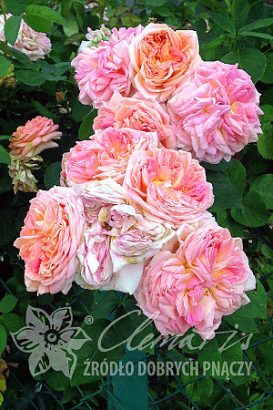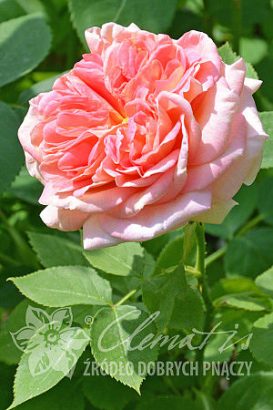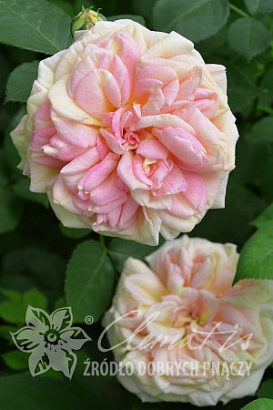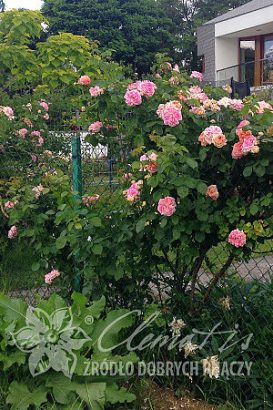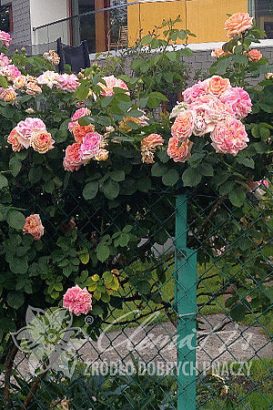Rosa ‘Alchymist’
Climbing rose 'Alchymist'| 装饰形式 | flowers |
|---|---|
| 花色 | --- |
| 植株高度 | 3-4 m |
| 花期 | VI, VII |
| 年增长率 | 1-3 m |
| 种植方位 | sun, 3/4 sun, 1/2 sun |
| 修剪方式 | Zones 5 - 8 |
A strong-growing and free-flowering climbing rose of highly attractive, double, fragrant flowers of changing colours – from yellow-orange to pink.
WHAT IT LOOKS LIKE: Flowers 10-12 cm across, double, multicoloured – peach-orange at the beginning, turning pink as they develop; they grow densely along shoots; very fragrant, similarly to old roses. Free-flowering in VI. The shrub does not repeat flowering and does not set fruit. Leaves light green, lackluster. Shoots are thick, strong, stiff and thorny. Grows back after a freeze.
HOW IT GROWS: A vine that leans against supports rather than climb along them. The cultivar belongs to the Climbers group. Requires tying up. Strong-growing. The plant height depends on its support – in Poland it reaches 3-4 m. The supports should be sufficiently extensive and solid.
WHERE TO PLANT: Location requirements are for a sunny or slightly shaded site; soil should be fertile and moist but well-drained. The cultivar does not tolerate compact, heavy or sandy, drying ground. Thrives in soil of slightly acidic or neutral pH. Hardy (zone 5–8).
HOW TO PLANT AND MAINTAIN: Before planting immerse the plant container in water for 10-30 min. Place the root ball in a 40 x 40 x 40 cm hole with a 10 cm layer of well-rotten manure or compost, 3-5 cm deeper than it was before. Fill the hole with fertile compost soil. Requires annual pruning, in spring and in summer – following the bloom. In spring, dead or damaged or frozen shoots should be removed as well as those that are weak and thicken the shrub excessively. Also, the overgrown shoots or those that would develop flowers, should be cut back to the “pencil thickness”. In summer, after the bloom, the flowering shoots are pruned as far as the very base of the plant, along with the oldest and the weakest ones.
HOW TO APPLY: The cultivar is suitable for house gardens. It may trained along hedges or walls, entrance gates, pergolas and arbours. If grown without supports, it may be a feature in a large rock garden.
ORIGIN: Germany. Raised in Kordes nursery in 1956.

